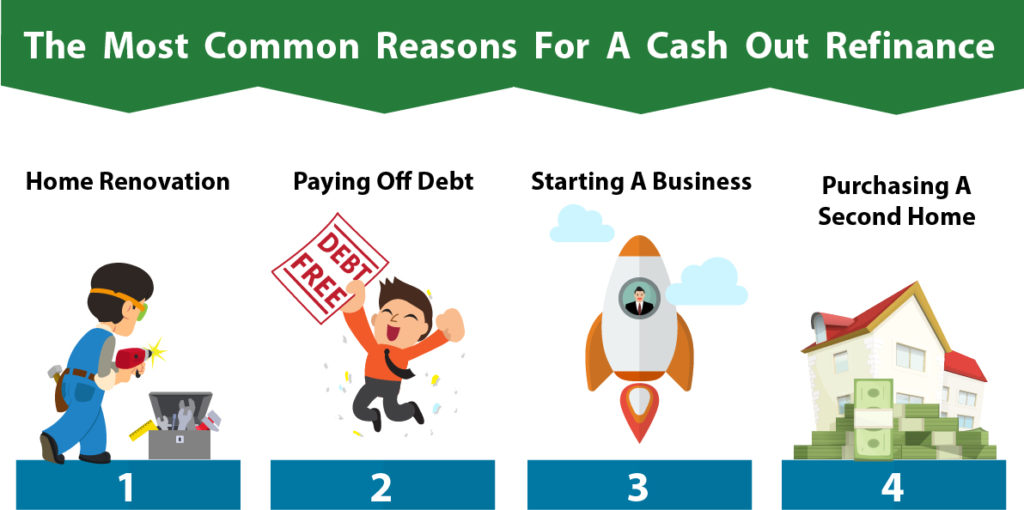
In general, when interest rates are on the rise, homeowners don’t refinance their mortgages. This makes sense because many people choose to refinance in order to reduce their monthly payments. When refinances are initiated during periods of rising interest rates, though, the reasoning behind them is often quite different.
Why Refinance When Interest Rates are High?
In most cases, when a homeowner decides to refinance their mortgage when the interest rates are high or rising, the action is fueled by the desire to “cash out.” This means that the new mortgage is larger than the balance due on the old one with the excess money being used to fund other, discretionary purchases.
According to data from Freddie Mac, the last quarter of 2017 saw the rate of cash out refinances rise to their highest levels since 2008. In fact, since the last presidential election in November 2016, these rates have increased. Throughout 2017, though, there has been a noticeable dampening of the initial post-election surge.
Loan-to-Value (LTV) Ratio and Cash Out Refinancing
When refinancing a home, many lenders are comfortable with offering a line of credit that is equal to 80 percent of the home’s loan-to-value (LTV) ratio. This is a lending risk assessment that involves dividing the amount that was borrowed by the property’s appraised value. It’s expressed as a percentage with borrowers who have LTVs that are 80 percent or lower often being offered better terms by lenders.
Is a Cash Out Refinance a Good Idea?
There are several instances when choosing a cash out refinance could be a good idea financially. One of the most popular of these is to consolidate or otherwise more effectively manage other debt that has higher interest rates such as credit cards or loans for higher education. It’s important to remember that the new mortgage loan will be for 30 years. Crunching the numbers to see if paying off credit card and other debt is going to yield the expected savings is a good idea.
Another common reason for initiating a cash out refinance is to make repairs or upgrades to the home. This strategy of using the funds to reinvest the money back into the house not only means that the mortgage interest might be able to be deducted from the borrower’s federal taxes, but it can also increase the value of the home.
One segment of the population that could especially benefit from this type of refinancing are older adults. As the trend to age in place continues to gain popularity, their homes will need to be upgraded and retrofitted in order to meet the changing needs their later years bring.
Though there is some question about these types of refinances leading to another housing bubble, that’s not likely to happen. For one thing, both lenders and homeowners alike are acutely aware that the value of the housing market can trend downward which will keep the loans offered and accepted reasonable and realistic. Regulations implemented since then are also designed to make sure the housing crisis doesn’t repeat itself.

 Protected with 256 bit SSL
Protected with 256 bit SSL




